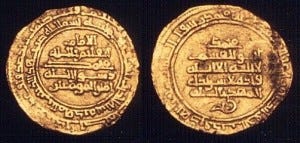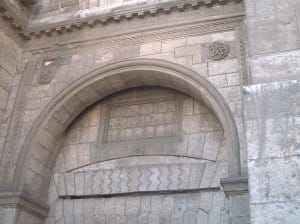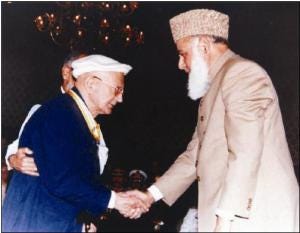10 Ismaili Muslim Poets Everyone Should Know About
Poetry is the voice of God speaking through the lips of man. If great painting puts you in touch with nature, great poetry puts you in direct touch with God. It is not a soft indulgence, you need to be wide awake, with all your wits about you, to share the poet’s joys. And, indeed, happiness is never a negative affair; it is to be won by men who are fully alive, full of the joy of living.
Imam Sultan Muhammad Shah Aga Khan III,
(Interview with The Daily Sketch November 2, 1931)
As members of a rich and vibrant esoteric tradition of Islam, Ismaili Muslims has always emphasized intellectual exploration in matters of faith. The present and hereditary Imam of the Ismailis, Shah Karim al-Husayni Aga Khan IV, has often discussed the “interdependence of spiritual inspiration and learning” and said that “the widening of man’s intellectual horizons [is] essentially (an) Islamic [concept]” (Mawlana Hazar Imam, Aga Khan University Speech, November 11, 1985). Throughout history, the Ismaili Imams and their murids have extended this intellectual search to the spiritual realm and the esoteric knowledge emanating from this search has been expressed in mystical, intellectual and doctrinal poetry.
Although poets like Rumi and Hafiz are better known in the West, many Ismaili poets are now being recognized for the literary titans that they are and their remarkable works are being revitalized. Even Ismaili murids today, such as Khayal Aly Dhanidina, Ikhwan Allani, Shaqiera Ladhu, and Aly Sunderji, have taken cues from the Ismaili poets of the past and continued this beautiful tradition. One of the most distinctive elements of Ismaili Muslim poetry is how it serves as an expression of intellectual depth, theological doctrine, and esoteric gnosis. Let us briefly look at 10 Ismaili poets that every Ismaili Muslim today should know about and be proud of:
1. Imam al-Qa’im bi-Amr Allah (934-946)

Imam al-Qa’im bi Amr Allah was the twelfth hereditary Imam of the Ismaili Muslims and the second Caliph of the Fatimid Caliphate (909-1171). As the son of Imam al-Mahdi bi’llah, who founded the Fatimid dynasty, Imam a-Qa’im was deeply involved in the battles to consolidate the Fatimid Caliphate and it was in the course of these wars that he wrote the beautiful poetry we have today. His poetry boldly stated his and his father’s claim to Imamat, his right to religious authority over the Ummah, and attacked the authority of rival claims – including the powerful ‘Abbasid’s. His verses were met with angry counter-poems in the same style, rhyme and meter by the chief poets of the ‘Abbasid regime. (See Tahera Qutbuddin, “Fatimid Aspirations of Conquest and Doctrinal Underpinnings”, 203)
The below verses were written to his father, the Imam al-Mahdi, in the midst of a raging battle:
I am the sword of God and of God’s Messenger’s descendant, pole of right-guidance, prayer-direction (qiblah) for the people.
O imam of right-guidance, he whose branches God has perfumed, whose roots He has perfumed
I am your sword which splits the skull.
If you unsheathe it, nothing can blunt it.– Imam al-Qa’im bi-Amr Allah,
(T. Qutbuddin, “Fatimid Aspirations of Conquest and Doctrinal Underpinnings”, 204)
2. Imam ‘Abd al-Salam (1476-1494)

The 33rd Ismaili Imam ‘Abd al-Salam lived in Anjudan during a time of concealment or dawr al-satr. During this period, the Ismaili Imams outwardly posed as Sufi pirs and shaykhs to safeguard their lives and ensure the safety of the Ismailis. However, despite common misconception, this does not mean that he hid in a cave where no murid had any access to him. In fact, certain murids did indeed have physical access to the Imam and Imam ‘Abd al-Salam was no exception. On the occasion of the ascension to Imamat of Imam ‘Abd al-Salam, one of his murids with the pen name Salik commemorated the event in exultant poetry, declaring: “He’s arrived! With healing breath like Christ, son of the saved Mary. Greetings unto him…Salutations, salutations, for this wonderful news, which arrives without doubt from the heavenly orb of the world of religion.” (S. Virani, The Ismailis in the Middle Ages, 120).
Imam ‘Abd al-Salam was not just the subject of doctrinal poetry but he himself composed verses and at least four works are attributed to him. His most popular ode, addressed to the ‘Seekers of union’ is excerpted below:
Harken ye who quest for union, who boasts that he seeks.
Heed my words, for I am the Book of God that speaks!
If you desire that I open for you the door of mysteries,
then enroll in the school of submission and attend
to my teachings with all your heart.
If you long to behold my face then open the eyes of your heart;
for naught see these earthly, fleshly eyes save my appearance, time
eroding.
Whither can you behold me in this dusty realm, with these eyes?
For I am in a place yet placeless, beyond place and habitation.
If you desire to recognize me then first recognize your self,
for I recognize those who recognize me.
Thus naught but me do you see from Alpha to Omega; because of this meaning arcane I’ve manifested eternally.– Imam ‘Abd al-Salam,
(Translated by S. Virani, The Ismailis in the Middle Ages, 169-177)
3. Imam Shah Nizar II (1680-1772)

Imam Shah Khalil Allah was succeeded by his son Imam Shah Nizar (1680 – 1722), and this Imam moved the headquarters of the Imamat from Anjudan to the village of Kahak where one can still find his tombstone. A poem by Syrian Ismaili al-Hajj Khudr b. Yusuf, who journeyed to Kahak, illustrates his devotion to the Imam of his time, the fortieth Ismaili Imam Khudawand Nizar II: “O people of the House of God in his realm of angels, You have captured my longing, my desire; At your splendor all eyes gaze hearts overflow with your secret My path is your light…my eyes yearn only; For a vision of your beauty That all day long Naught else occupies my heart.” (F. Daftary, The Ismailis – An Illustrated History, 171)
Imam Shah Nizar II himself composed intellectual and doctrinal poetry (qasida) meant to elucidate who the Imam was in Ismaili theological thought:
In the eyes of the people I am only a person by the name of Nizar, but in reality I am the one who sees everything in the world of reality.
While I am present, the people with wisdom and intellect do not take advantage of my presence, and once I leave this world they make my tomb a sanctuary for the fulfillment of their wishes.– Imam Shah Nizar II,
(Har Chand Ke Man, Listen Here)
4. Ibn Hani al-Andalusi (d. 973)

Born in Andalusian Spain, Ibn Hani was renowned all over the Arab-speaking world for his poetry. Unfortunately, he was forced to leave his homeland for his intense devotion to the Ismaili Imams. Eventually becoming the Fatimid court poet, he wrote widely admired Arabic verses that captured doctrinal poetry with unique verve. Unfortunately he “died mysteriously, probably murdered by ‘Abbasid or Umayyad agents.” (See Faquir Hunzai, Shimmering Light, 23)
The resplendent poem quoted below actually gave the name to the IIS anthology of Ismaili poetry edited by Faquir Hunzai entitled Shimmering Light:
His home is the pure
water of revelation
which comes gushing forth
from a healing poolIt is the thicket of
paradise where the fruits
ripen and to which
the shadows return…It is the mine of
spiritual sanctity,
the essence of which
is a shimmering light.– Ibn Hani al-Andalusi,
(Faquir Hunzai, Shimmering Light, 24)
5. Prince Tamim al-Fatimi (948-984)

Eldest son of the 14th Ismaili Imam al-Mu‘izz li-Din Allah and brother to the 15th Ismaili Imam al-‘Aziz, Prince Tamim was a consummate poet and a devoted Ismaili. His verses are full of praise for his glorious spiritual and physical father – the Imam. However, as with the other Ismaili poets, his panegyric is not simply praise but is full of intellectual and doctrinal content. Here is an example of one such poem addressed to his father – the Imam al-Muizz – on the occasion of the festival of Nawruz:
When I compose a poem in praise of you,
I feel inspired and my speech becomes refined.
But if I wish to praise someone other than you,
I’m tongue-tied and my speech disproves the lie….
your honor is the dawn, your face a bright star,
and your right hand pours rain upon the creation.
You are the light from which we seek illumination,
the gracious beloved for whom ransom is given….
If Nawruz is a festival of joy and delight,
It is through your light that it has come to be so.– Prince Tamim al-Fatimi,
(Faquir Hunzai, Shimmering Light, 39, 41)
6. Al-Mu’ayyad al-Shirazi (1000-1078)

Among the most important intellectuals of the Fatimid Caliphate, al-Mu’ayyad al-Shirazi was called a “towering mountain of knowledge” by the Imam al-Mustansir who also announced Shirazi’s exalted spiritual rank second only to the Imam himself: Bab al-Abwab (Gate of Gates), equal to the rank of Pir of the South Asian Ismaili tradition. The Imam himself praised the Fatimid Da‘i Shirazi, saying: “Your like cannot be found among those that have gone —among all people—nor those that remain.” (Tahera Qutbuddin, Al-Mu’ayyad al-Shirazi and Fatimid Da‘wa Poetry – A Case of Commitment In Classical Arabic Literature, 78)
Shirazi was not only a poet, Bab al-Imam, and brilliant philosopher, but he also achieved one of the greatest military victories of the Fatimid reign – culminating in pro-Fatimid forces entering Baghdad and reading the khutbah in the name of the Fatimid Imam. Fearlessly outspoken and devoted to the Imamat, he was exiled from his home of Persia and initially severely marginalized in Fatimid Cairo. Ultimately becoming the Chief Da‘i, he has left behind a magnificent corpus including his autobiography (sirat), book of poetry (diwan), a translation of a book by Qadi al-Nu‘man, and 800 sermons on Ismaili theology called the al-Majalis al-Mu’ayyadiyyah.
His poetry, called Da‘wah poetry by some scholars, is filled with esoteric and intellectual concepts and Quranic exegesis including the following poem, addressed to the Imam al-Mustansir bi’llah, revealing the esoteric meaning of the Hajj to the Ka’bah:

O most glorious Qiblah of Truth
And most sublime Ka‘bah of the Living
If the Ḥajj is undertaken to the inanimate House (in Makkah)
So much more fitting, so much more worthy, that we betake ourselves unto you!
– Sayyidna al-Mu’ayyad al-Shirazi,(Diwān al-Mu’ayyad, in Virani, The Ismailis in the Middles Ages, 132)
7. Nasir Khusraw (1004-1088)

In the tradition of the Ismaili Da‘i polymaths before him, Nasir-i Khusraw was a master of many fields including philosophy, theology, poetry, and travel-writing. Most importantly, Nasir-i Khusraw became the Hujjat (proof) of the Imam in Khurasan – there are 24 Hujjats of the Imam spread throughout the world in every period of history. Raised in Khurasan, he describes his life as a wastrel living in dissipation until he experiences an epiphany in his forties. The epiphany leads him to give up a very lucrative court position to pursue existential truths all the way to the seat of the Fatimid Imams in Cairo where he learns at the feet of the great Fatimid intellectual al-Mu’ayyad al-Shirazi, of whom he would eventually become the most famous and exemplary student. While he reached the exalted spiritual rank of Hujjat (“proof” of the Imam) – two levels under the Imam among the ranks of religion (hudud al-din) – his house was burnt down and he was banished from preaching in his native Khurasan. Nasir lived out the rest of his life in exile in the village of Yumgan in modern day Afghanistan. (Faquir Hunzai, Shimmering Light), 51)
Nasir-i Khusraw was both a great philosopher and a famous poet. His poetry, like those of his predecessors, expresses philosophical truths about Ismaili doctrine and unveils Qur’anic exegesis. Using poetic devises, Nasir exhorts the reader to use their intellect to gain religious knowledge:
O young man! Arise from
the sleep of negligence
and look upon the world with the keen eye of intellect!
the keen eye of intellect!O ignorant one! Why do you
waste your time sleeping
and eating, for that is
the work of a donkey?Have you thought why
God has given you intellect?
That you may eat and sleep
contentedly like a donkey?…In order to ascend to
the abode of the righteous
make knowledge your feet
and obedience your wings.Pluck the bud of wisdom
from the branch of religion;
graze the hyacinth of obedience
from the fields of knowledge….O do not reject these
allusions of the “Hujjat”,
because truth should never
become an abomination.– Sayyidna Nasir-i Khusraw,
(Faquir Hunzai, Shimmering Light, 57-59)
8. Nizari Quhistani (1247-1320)

Only ten years old when the Mongols massacred the vast swaths of Ismailis in his area, the Ismaili Da‘i Nizari Quhistani grew up in a region where admitting to be Ismaili was like asking to be executed – his son was even arrested for “propagating the Ismaili faith”; thus, Nizari was reticent about admitting his faith publicly. However, his pen-name itself hinted at his religious affiliation and his poetry itself is full of allusions to his Nizari Ismaili identity and praise of the Ismaili Imam. Ivanow, the pioneer scholar in the study of Ismaili literature, noted that “only someone uninformed about Ismaili studies could even consider that the Dastur-nama was not written by a follower of Ismailism.”
When he was a young child full verses of magnificent poetry would come into his dreams. Only the intense hostility against Ismailis allowed Nizari Quhistani’s magnificent work to be marginalized as he is an acknowledged poetic great – his works numbered along with other giants of the field like Firdawsi, Rumi and Attar by poets of the region.
Given the sobriquet “hakim” or learned one, Nizari Quhistani’s verses are permeated with intellectual discourse of religion, praise of the Imam and frankly humorous bemusement at those who do not acknowledge the supremacy of the Imam of the Time. Scholars note that his poetry demonstrates the influence of such pre-eminent Ismaii philosophers as Abu Ya‘qub al-Sijistani, Hamid al-Din al-Kirmani, Nasir-i Khushraw as well as Nasir al-Din al-Tusi. Unfortunately, like other lovers of the Imams, he was also dismissed from his employment, his property confiscated, living the rest of his life in extreme poverty (see Nadia Eboo Jamal, Surviving the Mongols; Faquir Hunzai, Shimmering Light). In the below verses of his poetry, Nizari argues for the necessity of following the Imam of the time:
The way of the lovers is not to be traversed on the feet of the ordinary intellect, for the intellectuals are like birds and the path of love, a snare. Reflect on all the sciences, then come hither, that I may lead you to God’s Proof, the perfector of the imperfect. You stand behind anyone who winds a turban around his head and steps before you, thinking, ‘this is the Imam.’
Not for an instant is the world bereft of the Imam of the time!
Does what I say bother you? Well, what can I do about it if the Qur’an says so? As the Imam was and always will be, what would you respond to me if I were to ask, ‘Who is your Imam?’ If you do not know the Imam of your time with certitude, then know certainly that your wealth, wife, even the head upon your shoulders, all are forbidden to you. I’ll barter your type of Imam for the sweets at the tavern. After all, that turban on his head would be a good pawn for wine and a goblet. And if you have two Imams, what would you reply if I asked which one was your real Imam?
Let all the world’s clerics gather and issue an edict that the drunken Nizari is the dregs of humanity! I fear not being killed, nor am vexed at the thought of my flesh burning. I care not a wit for their flowing beards, for their long whiskers are naught but infantile!
– Nizari Quhistani,
(S. Virani, The Ismailis in the Middle Ages, 68-69)
9. The Khurasani Klan: Khaki Khurasani (d. 1646) & Fida‘i Khurasani (d. 1850-1923)

Khaki Khurasani lived during the Imamats of Imam Dhu’l Faqar ‘Ali (1573-1634) and Imam Nur al-Din (1634-1671). Unlike other Ismaili poets, he openly proclaimed his Ismaili faith and, like many of them, was persecuted for it. He was even tortured. Not only did he continue to compose intellectual and doctrinal poetry ripe with Ismaili beliefs, but also his descendant Fida‘i Khurasani continued this family tradition. Fida‘i Khurasani lived at the time of Imam Sultan Muhammad Shah and traveled several times to meet the Imam, who then resided in India. Not just a poet, Fida‘i Khurasani also authored books on Ismaili theology, law and history. Some of their poetry is quoted below:
The secret of the chosen is
Revealed to the ecstatic;
the ordinary ascetic knowsThe lord in this world
is the anchor of the ship;
the lord of religion is the pearl
in the ocean of meanings….I am Khaki, the faithful
Dog of Mawla’s religion,
Whereas the dogs of the world
Bark only for a carcass.– Khaki Khurasani,
(“Anchor of the Ship”, Faquir Hunzai, Shimmering Light, 103)
All the wealth and feeding of this world is like mud;
what can you obtain from mud except affliction?Your heart has become a slave to the wealth of the world;
Listen, how can you ever become the slave of God?Since you are a seeker of office, wealth and honor,
You do not know that each of them is a pit for you.You are like a greedy ant, ever gathering and hoarding;
How can you incline towards attaining perfection?…By ‘Ali’s love, let your heart be cleansed and purified.
Make the dust of his path collyrium for your eyes.– Fida’i Khurasani,
(“The Wealth of the World”, Faquir Hunzai, Shimmering Light, 118)
10. Allamah Nasir al-Din Hunzai (b. 1917)

Allamah Nasir (Hubb-i ‘Ali) was born in 1917 in Hyderabad (Pakistan). A prolific poet and author of various works of Ismaili theology, he writes in Persian, Turkish, Urdu and even Burushaski. In 1948 Mawlana Sultan Mohammed Shah appointed a mu’min from Hunza, known as Fath Ali Khan Sahib, with the mision of establishing Jamat Khanas and schools in China. Fath Ali Khan Sahib was accompanied in this mission by Allamah Hunzai. Due to the religious and political tensions prevalent in the area, Allamah Hunzai was always in constant danger and later imprisoned and tortured for some time. After returned to Pakistan, he continued his services to the Jamat and composed poetry in the praise of the Imam of the Time and the Ahl al-Bayt. Allamah Hunzai wrote his first book in prose, “The Chain of the Light of Imamat” in 1957 and this began a long history of writing books. He moved to Karachi and joined the Ismailia Association in 1962. During the 1960’s he established an institution known as Daru’l-Hikmat al-Ismailiyyah for the purpose of publishing his works. In reply to a submission to the Imam, he was sent a Taliqah blessing his new venture. This institution was later renamed as Danishghah-i Khanah-i Hikmat (DKH). Around the same time he also published some devotional poetry (written in his native language, Burushaski) submitted to Mawlana Hazar Imam who expressed his happiness for this service and referred to Hunzai’s poetry as a “Ginan Book in the Hunza language.” (Aga Khan, October 9, 1961)
Allamah Hunzai has written over 100 books on the esoteric aspects of the Holy Qur’an, of which over sixty have been translated into English, 25 into Gujarati and a few in Farsi, French and Swedish. His works on Ismaili ta’wil and philosophy both draw upon and develop the intellectual thought of prior Ismaili Da’is and Hujjats like Abu Ya’qub al-Sijistani, al-Mu’ayyad al-Shirazi, Nasir-i Khusraw, and Nasir al-Din al-Tusi as well as Imam Sultan Muhammad Shah Aga Khan III on practical spirituality and “monorealism”. Hunzai continues to write prose works and devotional poetry today. His qasidas are recited in Jamatkhanas around the world and have been recited in the presence of Mawlana Hazar Imam (as recent as May 2010 when the Imam attended the Foundation Ceremony of the Toronto Ismaili Centre). The following are verses from Allamah Hunzai’s qasida specifically penned to commemorate Mawlana Shah Karim’s Golden Jubilee:

Shah Karim, the light of ‘Ali, is pure and noble
The heaven is pouring light on the occasion of his jubilee
His golden jubilee in our time is an extraordinary revolution
It is not surprising if the day of Reckoning takes place on this occasion– Allamah Nasir al-Din Hunzai,
(Composed on Wednesday, May 30, 2007)


